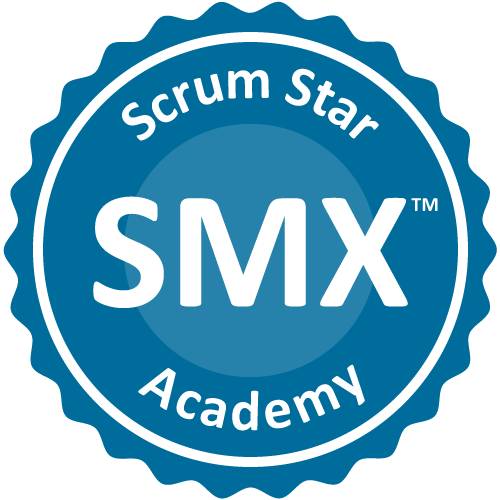The Scrum Master Career Path

So you are a Scrum Master. But will you remain a Scrum Master forever? What path of advancement can you expect? Let's analyze the most common options.
For some, Scrum Master is an entry level position and they like to see an outline of their career path options right from the start. This is understandable; it's ok to have other ambitions.
Others love the job and are in it for the long haul. Or so they think. The fact is that if they are good at their Scrum Master's job, sooner or later someone will notice and they will be in line for a promotion.
There are several career paths for Scrum Master:
1. Serving More Teams
As a new Scrum Master you will most likely begin by working with a single team. But as you get better at your job and as the team gains more experience, you will probably find yourself with some extra time on your hands.
That's when you can expand and start working with a second team. Of course there is a limit to how many teams you can handle. In my opinion, 3 teams is probably a reasonable limit.
2. Scaled Scrum Master
If your company works with scaled Scrum, there will probably be a position of an overseer of the scaled process. This position has many names; it could be referred to as Chief Scrum Master, Scrum Architect, Scaled Scrum Manager, etc.
In this role you'll be responsible for the entire scaled Scrum implementation: training the teams and identifying and fixing problems. You'll of course need to have good knowledge of the scaled framework in use.
3. Agile Coach
After you gain a lot of experience as a Scrum Master you can become an Agile coach. An Agile coach is a consultant, who can both train new Scrum Teams and continue helping them as they work on their Scrum projects.
Let's take a bit more time to explore this position, because it offers several paths you can pursue:
a) Stay at your current company
If your company has a lot of Scrum Teams, you may be able to remain there and serve as an internal Agile coach for your current teams. You can even continue working as a Scrum Master, but your responsibilities will be taken to a higher level and you'll be there to help multiple teams solve their Scrum challenges.
b) Join an Agile consulting company
You can leave your current employer and join a consulting company that organizes Agile coaching and training. There are many Agile consulting companies out there and if they're looking to take on more clients, they may need new coaches.
c) Start your own consultancy business
You can start your own independent consulting practice. This is how most of the existing consulting companies got started. If you have an entrepreneurial streak, this could be an interesting option for you.
In order to become a successful Agile coach you'll need to meet several requirements:
Have a lot of experience as a Scrum Master.
Agile coaches are expected to be experts in their field, so obviously you'll need a lot of theoretical and practical experience to become one.
Be genuinely interested in Agile methodologies.
If you're not into Agile methodologies and product development, don't get into Agile coaching. Follow your passion instead.
Feel comfortable working with and teaching others.
Coaching is all about working with people and dealing with problems. It's also about patiently teaching them and leading them to solutions they will accept. It requires a good grasp of soft-skills. Don't get into Agile coaching if you don't like working with people and handling their problems.
Have a knack for problem solving.
You'll need to be analytical, good at pin-pointing problem areas and suggesting solutions.
4. Manager
Although the position of a manager is not mentioned in the Scrum Guide and some Agile zealots cringe when hearing the word, managers are an integral part of any company. A good manager is essential to the success of a Scrum process. And if the manager is an ex-Scrum Master all the better! He or she will understand the ropes and support the Scrum Teams in just the right way.
When becoming a manager, your range of responsibilities might increase, and your authority will grow from being in charge of the process to being in charge of people. You won't be directly involved with the Scrum methodology any more but you'll oversee those who are.
Now, about the salary… Even though this might be seen as a promotion, your salary might or might not see a significant increase. The average Scrum Master salary in the U.S.A. is $101,000/year, while the average salary of an IT manager is $98,000/year.
But becoming an IT manager opens the door to further promotions, where salaries are significantly higher. For example, an IT director averages $131,000/year.
5. Product Owner
As you know, the Product Owner is a part of the Scrum Team that is responsible for the business side of the product development. This is a big responsibility and it's difficult to find good Product Owners. Not only do they need to understand and operate within the Scrum framework, but they need to be skilled at making business decisions.
Just like with the position of the manager, a Product Owner who used to be a Scrum Master should be well prepared for working with the Scrum team, so that's a big advantage you'll have right from the start. But there is much more to being a Product Owner.
This option is for you if you enjoy tackling business challenges, that come with the job: market research and analysis, dealing with project financing, scrutinizing the competition, planning product releases, and much, much more.
We're of course talking about a real Product Owner who has been fully empowered by the organization to do his or her job. The so-called proxy Product Owner won't have to worry about most of those issues.
Just like in the case of the manager position, your salary might or might not see a significant increase when you become a Product Owner. The average Product Owner salary in the U.S.A. is $96,000/year.
But what you need to remember is that salaries depend on many different factors. If you're stepping into a position that is crucial to the company's operations, the increased responsibility will most likely be reflected in your salary.
Conclusion
There are a number of interesting advancement paths for Scrum Masters. Of course there's no need to change if you like your job and you're getting paid well. Some people remain Scrum Masters for years. But eventually new opportunities will present themselves and you'll be faced with a decision, so it's good to know your options.




